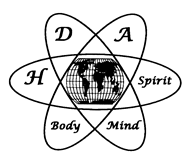According to the WHO, health is a state of complete physical mental and social well-being and not merely the absence of disease or infirmity. Therefore, it is very important to maintain harmony between our mind body and soul and thus the new era is here ‘holistic dentistry’. Holism is derived from the Greek word “holos” which means whole or entire. Hence, holistic dentistry gives prominence to oral health in correlation to an individual’s entire physical as well as emotional and spiritual health.
It’s easy to forget sometimes, but your oral health is closely linked to the rest of your body. That means that when a tooth becomes injured or infected, you may have a problem with the organ(s) that it is connected to, as well. This phenomenon occurs along what are known as the acupuncture meridians.
Understanding what affects each meridian and how these lines are connected throughout the body can help you take better care of your oral and overall health.
Holistic dentistry is firmly committed to viewing the body as an interconnected, complex system rather than just viewing the teeth on their own. Understanding the way energy flows connect our bodies helps your dentist to provide truly whole-health focused solutions which result in better circulation and balance throughout the entire body.
Traditional Chinese acupuncture has a history of more than 2500 years and is one of the best-known complementary and alternative therapies. Acupuncture stimulates the nervous system and alters the processing and perception of pain signals and also releases natural painkillers, such as endorphins and serotonin in the nervous system. Success of using acupuncture for dental treatments has been already proved.
Acupuncture can be used to manage a wide range of disorders in dentistry. It provides a new hope for patients with disorders that cannot be managed with conventional treatment modalities. Some of the conditions for which acupuncture can be used effectively include:
• Dental pain
• Dental anxiety and gag reflex.
• Temporomandibular joint (TMJ) pain or temporomandibular disorder (TMD).
• Chronic muscle pain or spasm
• Atypical facial pain
• Headache (tension headache, migraine)
• Xerostomia (dry mouth)
• Nerve pain (neuralgia, especially trigeminal neuralgia, neuropathic pain, nerve injury)
• Paraesthesia or anaesthesia of the oral and paroral structures.
Acupuncture is a beneficial traditional technique that can be used in dentistry. Numerous studies have shown the benefits of acupuncture applied to multiple conditions affecting the head and neck, especially for chronic conditions such as myofascial pain and TMJ pain. It is a tried and experienced method of traditional medicine. Acupuncture has been used in China and other Eastern cultures for thousands of years to promote and uphold good oral health. Various clinical trials tested and concluded that acupuncture could play a promising role in complementing conventional treatment modalities because acupuncture is generally safe and nontoxic, and produces very negligible adverse reactions.
So, how do you feel about this therapy? Share with us.
For more information, contact Raina Dental Care at 630 381 4021.



